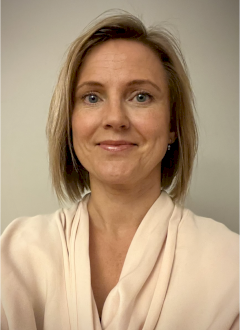International Keynote
Dr. Minna Johansson
Family Doctor, Herrestads Healthcare Centre, Närhälsan
Director, Global Center for Sustainable Healthcare
Researcher, Gothenburg University, FoUUI Fyrbodal, Cochrane Sweden
I have been working as general practitioner in a small town on the Swedish west coast for 14 years. My interest in research spring from a frustration I feel in my clinical work – that the way we currently practice medicine is unsustainable. In 2019, I founded an international research network – the Global Center for Sustainable Healthcare – focused on finding novel ways to make healthcare more sustainable for patients, clinicians, health systems, societies, and for our planet. I believe that the path forward is to invent new ways to advance care without overwhelming the capacity of people, economies, and the planet.
Recently, we introduced the Time Needed to Treat (TNT) concept, which received extensive attention. In short, TNT is a new method to facilitate for guideline panels to consider clinician time as a finite resource that needs to be carefully prioritized. The end goal is to increase the likelihood that we spend our limited time on the interventions with the greatest benefit, on the issues with the greatest importance for our patients, and for the patients with the greatest care needs.
I feel just as passionate about my clinical work as I do about my research - my goal is to contribute to a more sustainable healthcare through research inspired by the problems me and my patients face in clinical practice.
Who wants to work 27 h a day? - why researchs and guidelines should consider the clinician time needed to treat (TNT)
In this talk, I will argue that the way we currently practice medicine is unsustainable for patients, clinicians, health systems, our societies and the planet. We need a new way to appreciate human, financial and environmental resources in healthcare - we need to understand what we do in medicine through a lens of sustainability.
For example, there is a massive mismatch between what is being recommended in clinical practice guidelines and the available time for clinicians to implement the recommended care. To follow current guidelines, US primary care physicians are estimated to require 27 hours per working day. Just to implement the European hypertension guidelines, Norway would need more general practitioners than currently in practice. More physicians (from all specialties) and five times as many nurses than currently available may be needed to implement all lifestyle interventions recommended by the National Institute of Health and Care Excellence in the United Kingdom. Were clinicians to follow these guidelines, there would be no time left to care for other ill patients and the healthcare system would collapse.
It is thus evident that clinicians face a barrage of recommendations that in total are impossible to implement. As a result, clinicians must prioritize which recommendations to follow in which patients. Without guidance, and under the pressure of time, prioritizing decisions at the point of care will be implicit, variable, and likely often misguided.
One – at least partial – solution to this problem would be for guideline panels to consider the time needed to implement a recommendation when determining the direction and strength of recommendations. This requires a new methodology that highlights time constraints and provides a structure for their consideration. The Time Needed to Treat (TNT) method was introduced in The BMJ in 2023. TNT provides such a structure for how guideline panels can consider the time needed to implement the recommended care. The ultimate goal of estimating TNT is to avoid that clinicians and patients spend their limited time together on recommendations with smaller rather than greater importance to the individual patient, as well as to improve access to care for patients with the greatest need of medical attention.


